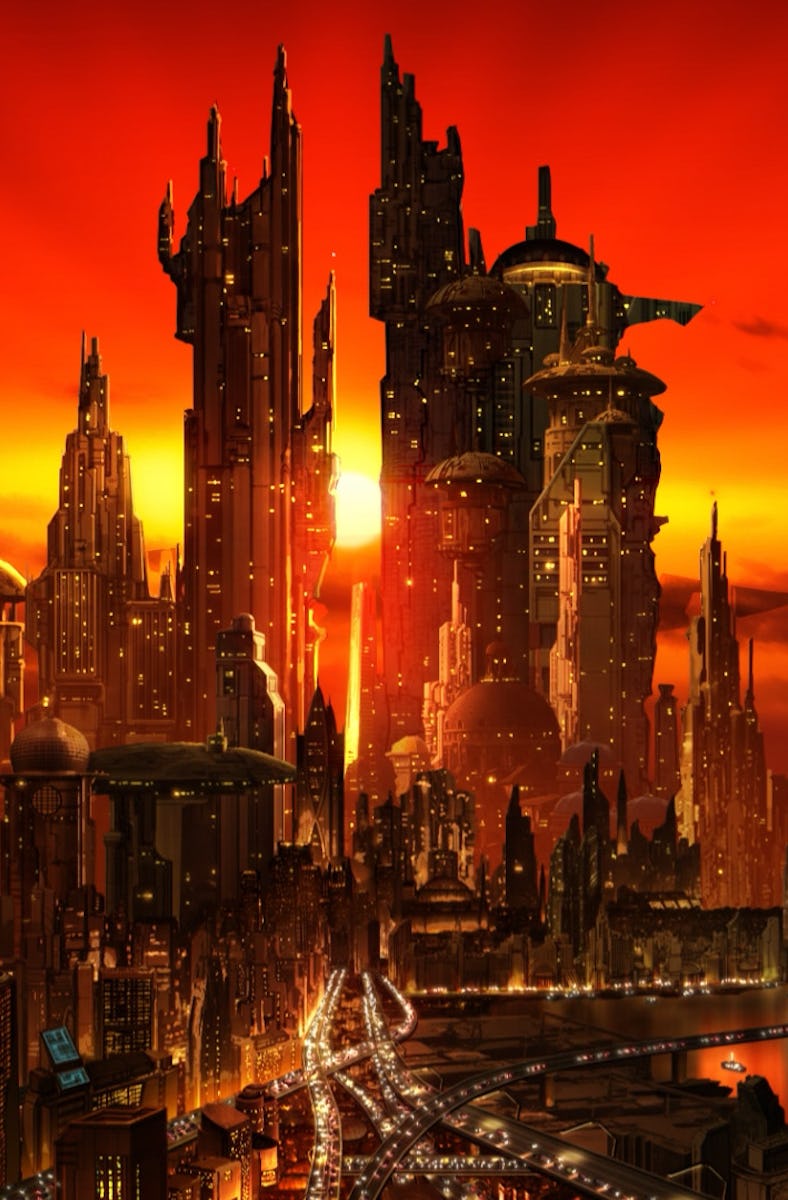Pluto Shouldn't Still Be This Relevant
One of the best sci-fi shows of 2023 has been 20 years in the making. So why does it resonate so powerfully today?

My favorite show of 2023 was one I’d been waiting on for years. Naoki Urasawa and Takashi Nagasaki’s 2003-2009 manga Pluto, a mature re-envisioning of “The Greatest Robot on Earth” arc from Osamu Tezuka’s classic Astro Boy, has long been a favorite of mine. Studio M2’s anime adaptation has been in the works since at least 2017 (before that, it was almost a movie from Minions studio Illumination — bullet dodged). After six years of waiting, it finally arrived on Netflix in October. The anime adapts its source material extremely faithfully, so it may come as a surprise that the original manga’s of-the-moment political commentary from 20 years ago is still startlingly relevant.
At the most basic level, “The Greatest Robot on Earth” is a story about how might doesn’t make right. Pluto is a robot built for the purpose of destroying the seven most powerful robots in the world. Mighty Atom (Astro Boy in the American translations) believes he needs to be upgraded to fight Pluto, but in the end, it’s his kindness and empathy that saves the day, convincing Pluto to work together with him to defeat an even more powerful and dangerous robot called Bora.
The Pluto manga maintains the core of this story while fleshing it out in darker directions. Instead of Atom, its main viewpoint character is Gesicht, a German robot detective investigating the murder of the most powerful robots. Pluto’s victims in this version also include humans, adding further terror and intrigue to the murder mystery, as robots aren’t supposed to be capable of killing humans.
Most fascinatingly, Pluto reworks the most problematic aspect of “The Greatest Robot on Earth.” While in the original story, Pluto’s creator is a cartoonish Middle Eastern stereotype, the manga took this concept and transformed it into a thoughtful commentary on the Iraq War. Pluto became the story of “39th Central Asian War,” in which “Persia” was invaded by the “United States of Thracia” over unfounded rumors of “robots of mass destruction” — sound familiar? (Urasawa and Nagasaki weren't much more subtle here than Tezuka was in the chapter in the original Astro Boy where Atom travels through time to help the literal Vietcong.)
The 39th Central Asian War in the manga.
And in the anime.
The Pluto manga is of a piece with a number of mid-2000s anti-war anime. Many viewers compared the depiction of the Ishvalan War in the 2003 Fullmetal Alchemist anime with the Iraq War. FMA 03’s director, Seiji Mizushima, was even more direct in making Iraq War comparisons with 2007’s Gundam 00, which featured a Kurdish Muslim protagonist. Hayao Miyazaki, who famously refused to attend the Oscars when Spirited Away won in protest of American foreign policy, inserted an anti-war story into 2004’s Howl’s Moving Castle that didn’t exist at all in Diana Wynne Jones’ source novel.
Though written while the Iraq War was still ongoing (and going, and going…), Pluto takes place seven years after the Central Asian War. Its cast of veterans, survivors, and conscientious objectors are all living — and dying, and killing — in the aftermath of the conflict, reckoning with the choices they made at the time and the cycles of violence continuing to ensue. In a way, this future-proofed the story’s ongoing potency. Even if certain elements date Pluto (like our Saddam Hussein stand-in still being alive in prison, or a George W. Bush look-alike still being the president), it holds up as a reflection on history from when this history was still being written.
Then there’s the sadder aspect of Pluto’s continued topicality: how history repeats. The anime premiered around three weeks into Israel’s bombardment of Gaza in response to Hamas’ terror attack on October 7. Looking at the response to 10/7 has brought back bad memories of the response to 9/11, indefensible tragedies begetting more indefensible tragedies. In this environment, protest art from the 2000s war on terror feels particularly potent.
There’s a scene in Pluto’s third episode where Gesicht recalls his experience in the war. Gesicht was only killing other robots in the war, but he was nonetheless witness to human suffering he couldn’t comprehend. In this flashback, Gesicht is trying to track down terrorists but instead comes across a father in a bombed-out house, grieving his children killed in the bombings. The man yells in tears, "To hell with saving the oppressed! Is killing children your idea of justice? Have you no humanity? You must know how I feel!” The soldier, programmed to follow orders and still learning to understand human emotion, can only reply, “I am a robot.”
The biggest difference between today and the early 2000s is that technology is starting to catch up with the world of Pluto. Artificial intelligence dominated the conversation in 2023, and militaries are already starting to use AI to speed up the atrocities of war. These computer programs won’t be feeling Gesicht’s remorse any time soon, but as inhuman technology continues escalating all-too-human cycles of hatred and revenge, the words that echo in Gesicht’s memory continue to echo in my mind every time I look upon the senseless destruction wrought by war in the news.